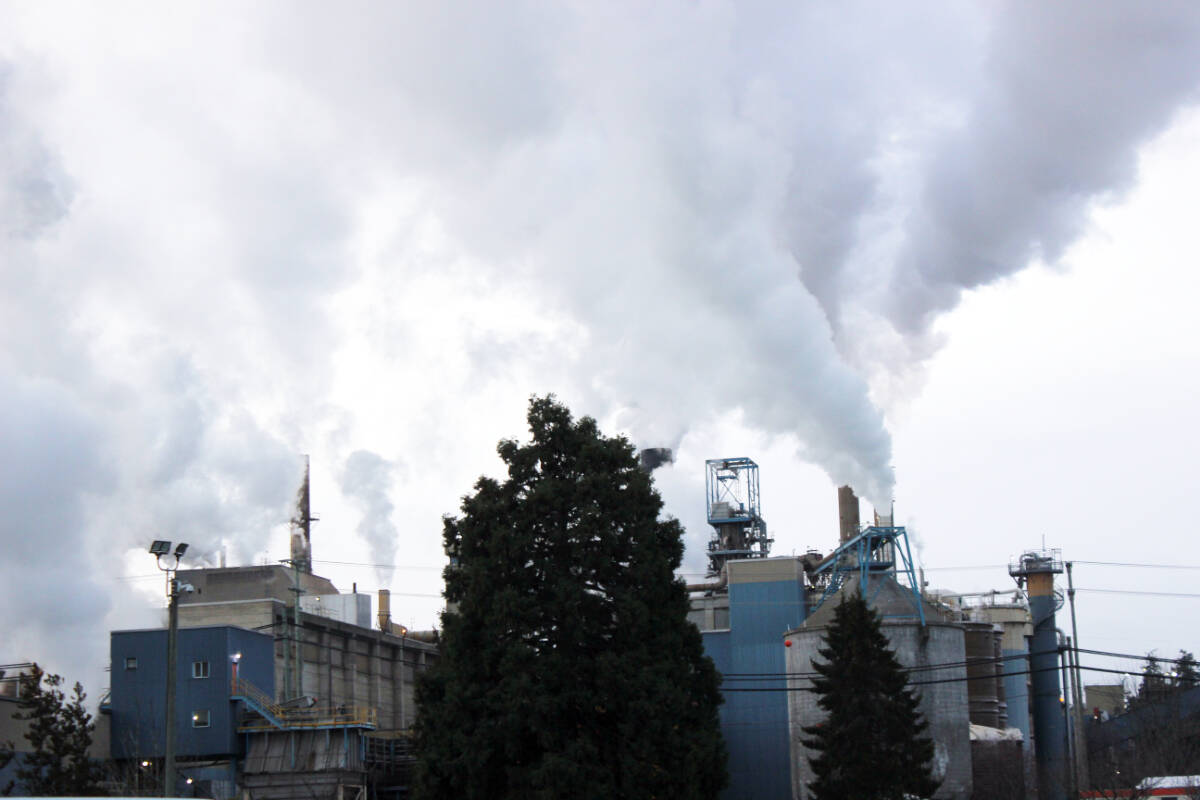BC United Leader Kevin Falcon said a government under his leadership would move the ministry of forests to Prince George, “so we got decision-makers that actually come from the communities that their decisions impact.”
Falcon made that announcement Wednesday while speaking at the Natural Resources Forum in Prince George.
Forest Minister Bruce Ralston later dismissed the promise, noting that about 81 per cent of ministry staff, some 2,400 people, already work outside Victoria already.
“They will say anything – you can’t believe them,” Ralston said. “Kevin Falcon and (BC United) have been attacking public sector jobs and would cut many of these jobs, setting back our efforts to support the natural resource sector.”
Falcon’s promise and Ralston’s response come as the forest sector and the communities that depend on it continue to deal with overlapping developments.
They include declining timber supplies in face of climate change and the spread of the mountain pine beetle, the long-running softwood lumber dispute with the United States, and concerns about permitting. First Nations have also been asking for a greater stake in the industry. While government and industry have expressed support for this process, it is far from complete. Environmentalists and community groups, meanwhile, have respectively lamented what they consider the continuing failure of government to protect B.C.’s shrinking but highly lucrative old-growth forest and the out-sized corporate control of timber supply.
RELATED: 4 B.C. First Nations, forest company strike ‘landmark’ $36M deal
With the industry in transition and facing declining revenues, recent government announcements have emphasized programs that incentivize previously under-utilized timber sources and broadly add more value to wood products.
Representative of this approach has been the $180-million BC Manufacturing Jobs Fund first announced in early 2023.
Jobs Minister Brenda Bailey used the occasion of the Natural Resource Forum to announce additional support for six wood-product manufacturers and two fabricated-metal manufacturers.
Richmond Plywood Corp. Ltd. will be receiving as much as $2.3 million to purchase and install new, innovative equipment to enhance its value-added manufacturing processes using second-growth fibre and waste wood.
But some of the initial projects receiving financial support in the broader sense have yet to find success. This has been case in the Vancouver Island community of North Cowichan, whose Mayor Rob Douglas recently asked the provincial government for additional support for unionized workers at Crofton’s Paper Excellence Catalyst pulp and paper mill.
RELATED: Mayor Douglas seeks enhanced provincial support for the Crofton mill
Almost exactly a year ago, Ottawa and Victoria announced a joint investment of $18.8 million to help the company produce water-resistant paper packaging to replace single-use plastics, a move promised to save more than 100 jobs. But the transition has not gone smooth.
The paper side of the operation will remain under curtailment until at the end of February dating back to June 30 while workers in the pulp sector were curtailed for three months last summer before operations had resumed in October 2023.
When asked about Crofton, Premier David Eby said his government still hopes that the company is going to be able to use provincial support to buy the necessary equipment for the transition.
“They have not said that they are not doing that,” Eby said. “It’s definitively taken way longer than we wanted and frankly, than what we expected from Paper Excellence. But we do understand the strains that they are under. We went there to save those jobs and that’s the approach we will continue to take.”
Eby added this government is taking the future of the forestry sector very seriously, pointing to the recent appointment of Andrew Mercier to the cabinet-level post of Minister of State for Sustainable Forestry Innovation on top of the existing file held by Ralston.
“Forestry is the future of British Columbia,” Eby said, adding it is a low-carbon sector that supplies important building materials for the domestic market, while shipping second-to-none products around the world. “We continue to support those jobs.”
RELATED: Forest permits, penalties, prescribed burns targeted in new B.C. legislation
When asked what a government under his leadership would do differently, Falcon said it would “create certainty for the sector through the prompt issuance of permits and approvals to access the land base,” a point also found in Douglas’ letter.
Government, for its part, has promised to speed up permitting for natural resource projects generally. The fall session saw the passage of legislation that promise to toughen penalties while cutting red tape in the forestry sector.
But another line of thought holds that larger forces outside of any government’s immediate control such as climate change and American protectionism will ultimately determine the fate of the forestry sector. Falcon acknowledged those forces.
“But every challenge is also an opportunity,” he said. “With climate change, we have to do a better job of managing forest fires. We got lots of great logging contractors out there, who can help us with the forest thinning that we need to do throughout the province to (prevent forest fires) that are massively impacting one of our most valuable resources.”
As for American protectionism, B.C. will always find itself “battling” Washington, D.C. But B.C. can still do its part to create the certainty that re-attracts investment into the forestry sector, he said. He said that he won’t allow forestry-dependent communities to “just disappear without putting up a fight to make sure that we have got a forestry industry that is going to be there for generations to come.”
-with files from Don Bodger
@wolfgangdepner
wolfgang.depner@blackpress.ca
Like us on Facebook and follow us on Twitter.

